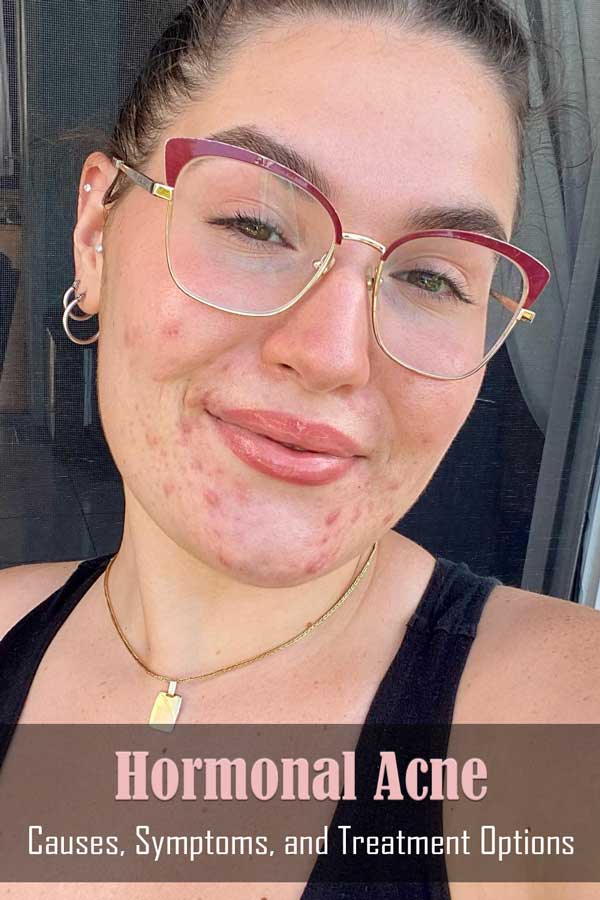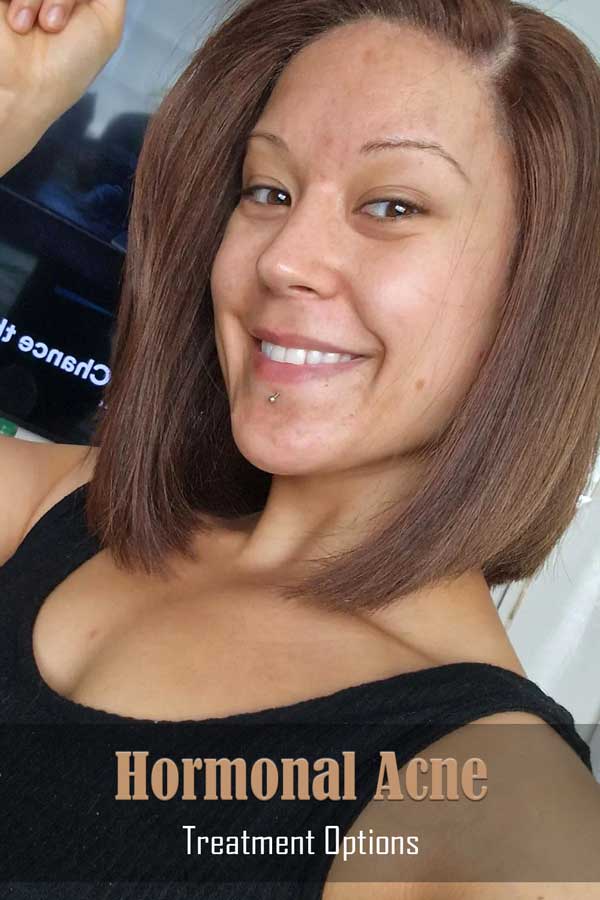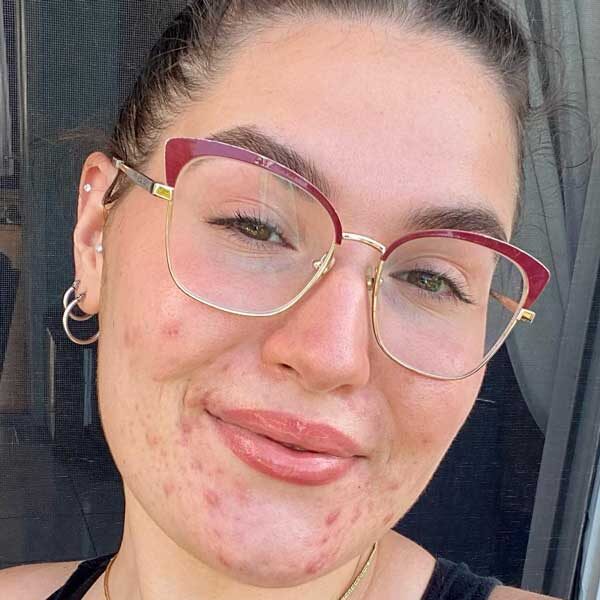Hormonal acne, a prevalent skin condition, impacts numerous individuals, especially during puberty and adulthood. This condition arises due to hormonal imbalances within the body that result in the excessive production of sebum, a natural skin lubricant. The surplus sebum can obstruct pores, giving rise to the emergence of whiteheads, blackheads, and pimples. So, in this article, we will explore the causes, symptoms, and treatment options for hormonal acne.

Causes of Hormonal Acne
Hormonal acne is caused by the fluctuations of androgens, which are male hormones that are also present in females. When androgens are overproduced, they stimulate the sebaceous glands to produce more sebum, which can clog the pores and cause acne breakouts. There are several factors that can contribute to hormonal imbalances and trigger hormonal acne, including:
- Puberty: Hormonal changes during puberty can trigger the onset of acne.
- Menstrual Cycle: Women may experience acne breakouts during their menstrual cycle due to fluctuations in hormone levels.
- Pregnancy: Hormonal changes during pregnancy can also trigger acne breakouts.
- Polycystic Ovary Syndrome (PCOS): PCOS is a hormonal disorder that can cause hormonal imbalances and lead to acne breakouts.
- Hormone Replacement Therapy (HRT): HRT can also cause hormonal imbalances and trigger acne breakouts.
Symptoms of Hormonal Acne
Hormonal acne typically appears as small, red bumps on the skin, which can be painful and inflamed. It usually occurs on the face, neck, chest, and back, where there are a large number of sebaceous glands. Other symptoms of hormonal acne may include:
- Blackheads or whiteheads
- Pimples or papules
- Cysts or nodules
- Oily skin
- Scarring
Treatment Options for Hormonal Acne

Hormonal acne can be treated with a variety of treatments, depending on the severity of the condition. Below are some commonly utilized treatments:
- Topical treatments: Topical treatments are used to reduce the amount of sebum produced by the sebaceous glands and unclog pores. These treatments include retinoids, benzoyl peroxide, and salicylic acid.
- Oral medications: Oral medications are used to reduce the production of androgens, which can help prevent acne breakouts. These medications include oral contraceptives, spironolactone, and isotretinoin.
- Light therapy: Light therapy involves utilizing various forms of light to eliminate bacteria on the skin and decrease inflammation. Typically, this therapy is combined with other treatments.
- Chemical peels: Chemical peels are used to exfoliate the skin and unclog pores, which can help prevent acne breakouts.
- Lifestyle changes: Lifestyle changes, such as a healthy diet, exercise, and stress management, can also help reduce hormonal imbalances to manage acne breakouts.
Preventing Hormonal Acne
While hormonal acne can be difficult to prevent, there are several steps you can take to reduce your risk of developing this condition. These steps include:
- Maintaining a healthy diet: Eating a healthy diet that is low in sugar and processed foods can help reduce the risk of hormonal imbalances.
- Exercising regularly: Regular exercise can help reduce stress levels and improve overall hormone balance.
- Managing stress: Stress can trigger hormonal imbalances, so it’s important to manage stress levels through meditation, yoga, or other relaxation techniques.
- Using non-comedogenic products: Non-comedogenic products are less likely to clog pores and cause acne breakouts.
- Avoiding harsh skincare products: Harsh skincare products can irritate the skin and cause acne breakouts, so it’s important to use gentle, non-irritating skincare products for acne-prone skin.
To Conclude
The body’s hormonal imbalances can trigger hormonal acne, a prevalent skin condition. While it can be difficult to prevent, there are several treatment options available, including topical treatments, oral medications, light therapy, chemical peels, and lifestyle changes. By taking steps to reduce your risk of developing hormonal imbalances, you can help prevent acne breakouts and maintain healthy, clear skin. If you are experiencing symptoms of hormonal acne, it’s important to speak with a healthcare provider to determine the best course of treatment for your individual needs.
